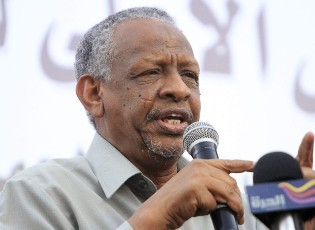Bashir aide challenges opposition to declare stance on Sharia laws
November 10, 2012 (KHARTOUM) – Sudan’s presidential assistant, Nafe Ali Nafe, has claimed that the government is in possession of documents proving that opposition parties are against the implementation of Islamic Shaira laws and trying to create a secular state, challenging them to a public debate over the issue.

Nafe, who is also the deputy chairman of the ruling National Congress Party (NCP), accused the opposition of masking its pursuit of a secular state through the use of vague names like the “civil state”.
The NCP official demanded that opposition parties make their stance on the issue of Sharia clear.
The issue of the relation between religion and the state has been a subject of much controversy and polarization in the domestic political arena since the NCP revealed its intention to create a new constitution to supersede the current transitional one which was installed in 2005 as per the Comprehensive Peace Agreement (CPA) which culminated in the secession of predominantly-Christian South Sudan last year.
Nafie’s remarks are directed at the coalition of mainstream opposition parties, the National Consensus Forces (NCF), which include the National Umma Party (NUP) led by Al-Sadiq al-Mahdi, the Islamist Popular Congress Party (PCP) of Hassan Al-Turabi and the Sudanese Communist Party (SCP) among others.
NCF allies say they are opposed to attempts by the NCP and radical Islamist groups to create a puritan version of an Islamic constitution citing the need to recognize diversity and existence of religious minority groups. They call instead for creating a “civil state” which, they argue, is different from a secular state.
But there are divisions among NCF allies over this particular issue. PCP’s leader Hassan Al-Turabi confirmed the rift in an interview with Sudan Tribune last week, saying that some of their allies disagree with their pursuit of an Islamic state but all of them agreed to defer this disagreement in order to focus on their common denominator of regime change.
Al-Turabi also said that they agreed to tackle this issue during the transitional period that would follow the fall of the regime.
(ST)
